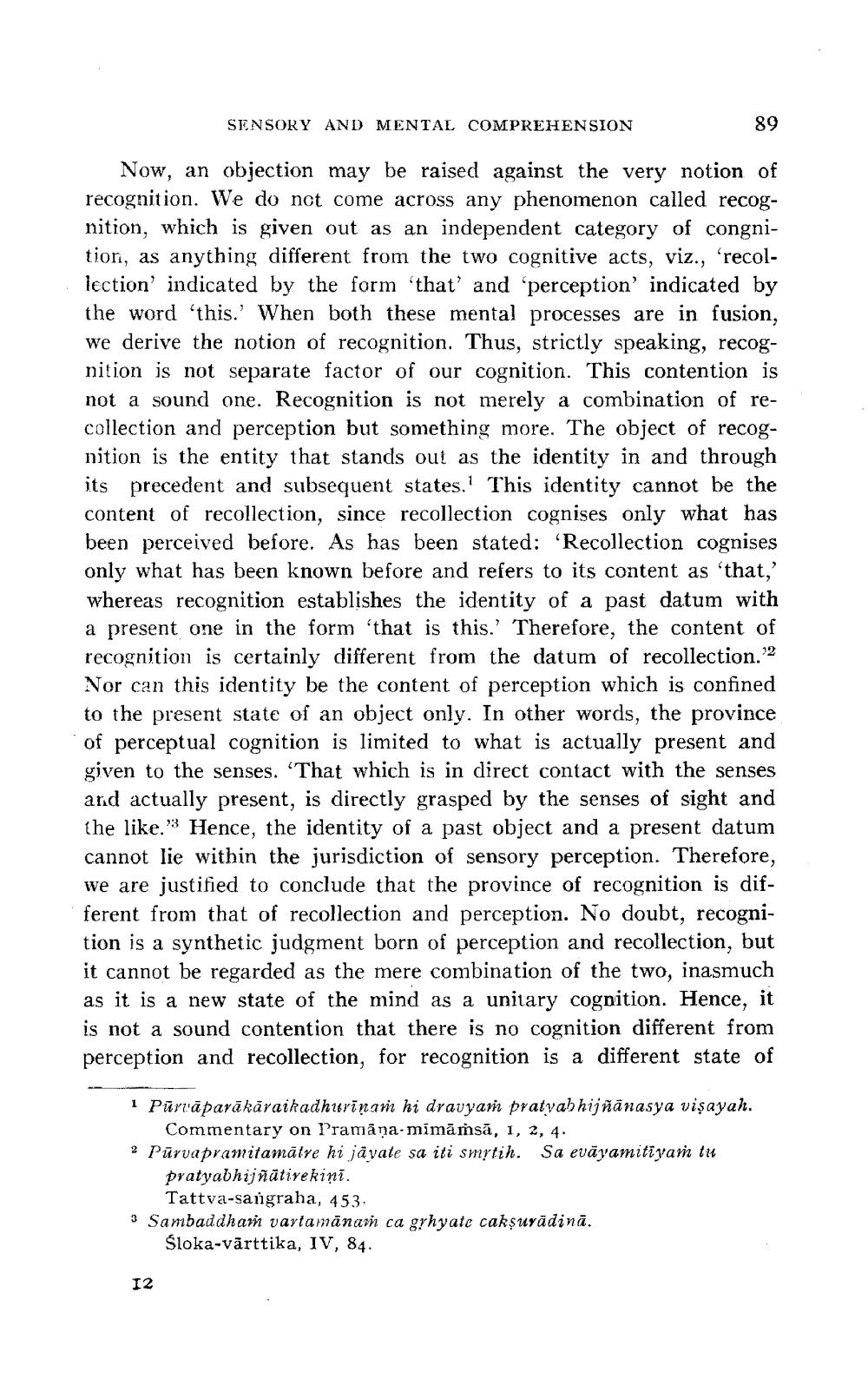________________
SENSORY AND MENTAL COMPREHENSION
89
Now, an objection may be raised against the very notion of recognition. We do not come across any phenomenon called recognition, which is given out as an independent category of congnition, as anything different from the two cognitive acts, viz., 'recollection indicated by the form that' and 'perception' indicated by the word "this.' When both these mental processes are in fusion, we derive the notion of recognition. Thus, strictly speaking, recognition is not separate factor of our cognition. This contention is not a sound one. Recognition is not merely a combination of recollection and perception but something more. The object of recognition is the entity that stands out as the identity in and through its precedent and subsequent states. This identity cannot be the content of recollection, since recollection cognises only what has been perceived before. As has been stated: Recollection cognises only what has been known before and refers to its content as 'that,' whereas recognition establishes the identity of a past datum with a present one in the form that is this.' Therefore, the content of recognition is certainly different from the datum of recollection.2 Nor can this identity be the content of perception which is confined to the present state of an object only. In other words, the province of perceptual cognition is limited to what is actually present and given to the senses. “That which is in direct contact with the senses and actually present, is directly grasped by the senses of sight and the like. Hence, the identity of a past object and a present datum cannot lie within the jurisdiction of sensory perception. Therefore, we are justified to conclude that the province of recognition is different from that of recollection and perception. No doubt, recognition is a synthetic judgment born of perception and recollection, but it cannot be regarded as the mere combination of the two, inasmuch as it is a new state of the mind as a unitary cognition. Hence, it is not a sound contention that there is no cognition different from perception and recollection, for recognition is a different state of
1 Pūri'āparākāraikadhurīnar hi drauyam pratvah hijñānasya vişayah.
Commentary on Pramāna-mimāṁsā, 1, 2, 4. 2 Pūrvapramitamätre hi jāvate sa iti smrtih. Sa evāyamitīyam tu
pratyabhijñātire kini.
Tattva-sangraha, 453, 3 Sambaddham vartamānam ca grhyate cakşuyādinā.
Sloka-vārttika, IV, 84.
12




